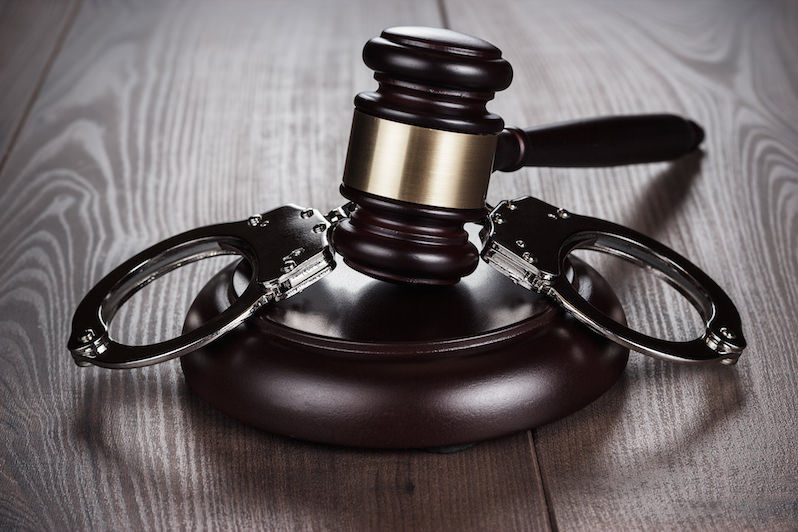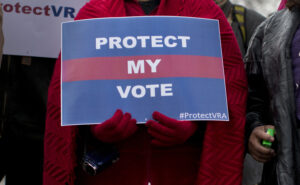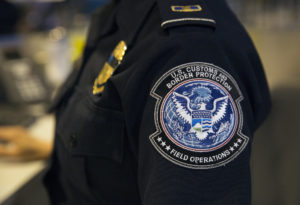The Disenfranchisement of American Felons: Caught Once and Left Behind for Good
The American public only loses when we don't allow felons to try to reintegrate into society. Shutterstock
Shutterstock
“Sins cannot be undone, only forgiven,” Russian composer Igor Stravinsky once said — an interesting statement from a man who once premiered a song that was so dissonant it caused a riot.
In many states in America, convicted felons who have done their time do not return to society with a clean slate, as they are barred from participating in the voting process. That’s true even in cases of nonviolent crime or those in which the accused were sentenced only to probation.
Iowa, Kentucky and Florida are three states in which convicted felons lose their voting rights, although Iowa does offer a long and complicated application process they can endure in an attempt to reclaim those rights. Nine other states have similarly strict laws that either require a five-year waiting period before voting rights are restored after a completed sentence or deny future participation outright according to a list of specific felonies. An additional 19 states prevent people from voting during their prison term, parole or probation. According to The Sentencing Project, 5.85 million otherwise eligible voters have been disenfranchised by such laws. The history of voter disenfranchisement in America is long, complicated and deeply impacted by racism.
As professor Susan Greenbaum pointed out in an Al-Jazeera America article published in February, the liberation and eventual enfranchisement of the African-American population after the Civil War threatened industries that relied on slavery and also enabled the African-American community to participate in the democratic process by voting. How did those in power respond? “First, massive numbers of African Americans were arrested for little or no reason and sent to work in mines, mills and fields, creating an almost limitless supply of effectively free labor,” Greenbaum wrote. “Under newly enhanced (and in some cases newly created) laws, these ex-felons were then forever after denied the right to vote. This process also planted in the American psyche a viciously tenacious stereotype of African American criminality.”
Then came the “war on drugs.” The United States prison population consists of over 2.4 million people, which amounts to a figure four times larger than it was in 1980, around the time that “war” was aggressively declared. The American prison population has risen at a much faster rate than the country’s general population, and the war on drugs has disproportionally affected the minority population: 62 percent of incarcerated drug offenders are black, while blacks make up 12 percent of the total population. That said, a 2011 survey by the Substance Abuse and Mental Health Services Administration found that a higher percentage of white than black Americans have tried cocaine, as well as certain pain relievers, methamphetamine, marijuana and hallucinogens — suggesting that very particular battle lines are drawn in the war on drugs.
Of course, there are organizations and activists fighting to reinstate felons’ voting rights. The ACLU filed a lawsuit against Iowa’s government on Nov. 7 on behalf of stay-at-home mother Kelli Jo Griffin, who served five years’ probation but no jail time for being caught with 100 grams of cocaine. They claim the restrictions that prevent people like Griffin from voting in Iowa are unconstitutional — while that state’s constitution stipulates that people cannot vote after having been convicted of an “infamous crime.” The Supreme Court ruled in May that “infamous crimes” don’t include misdemeanors or most felonies (although SCOTUS justices didn’t list which felonies aren’t included). The ACLU is arguing that serving probation for a drug offense shouldn’t be considered an infamous crime according to that top court ruling.
“This topic is extraordinarily important in Iowa and elsewhere because so many people are disenfranchised because of these laws,” Julie Ebenstein, a staff attorney for the ACLU’s Voting Rights Project, told Truthdig. She said conviction for nonviolent crimes should not be considered grounds for revoking voting rights in any state. Although the plaintiff in this case is a white woman, Ebenstein affirmed that this is a fight that is very important for minority communities.
“Disenfranchisement can’t and shouldn’t be discussed without recognition of the racial disparities in its impact,” she said. “In two of the lifetime disenfranchisement states, Florida and Kentucky, I believe it’s 22 and 23 percent of the African-American voting age population that’s been disenfranchised. Let that sink in for a minute. That is incredible that those states have removed such a large chunk of society from the democratic process and have done so on a racially disparate basis.”
Ebenstein noted that, though these voting laws may come from the Jim Crow era, they clearly have serious impact today.
Another person battling these laws is Rep. John Conyers Jr., D-Mich., who was a key congressional player in introducing the Voting Rights Amendment Act of 2014. He introduced a bill called the Democracy Restoration Act with Sen. Ben Cardin, D-Md., in April that aims to restore voting rights to all felons who have been released from prison. The measure also proposes that payment of a felon’s restitution, the fees associated with damage he or she may have caused, should not get in the way of restoring voting rights.The legislation has remained with the Subcommittee on the Constitution and Civil Justice since June. Conyers does not seem optimistic that the bill will move forward given the current scene in Washington. “I do not find the current political environment to be favorable to reforming voting laws,” Conyers told Truthdig. “From the beginning, felony disenfranchisement has been cast in racial terms. Due to preconceived ideas about which party might be given a greater political advantage by the bill, supported in some cases by academic research, it has been difficult to gain a bipartisan consensus on the legislation.”
He is happy senators like Rand Paul have spoken in favor of at least some felony voting restoration, but he wants to apply the restoration to all felons. “It’s an important issue. When you look at who is being deprived of voting they are disproportionately people of color,” Paul told a Kentucky state Senate panel in February. “While Sen. Rand Paul has been open to discussion on a more limited form of re-enfranchisement, we still need to work toward gaining more bipartisan support for a measure that is essentially about fairness and giving people who have paid their debt to society the basic indicia of citizenship,” Conyers said.
Certain people on both sides of the aisle can see how this issue affects minority populations, but bills like the Democracy Restoration Act face “major hurdles,” according to Conyers. “Only those who seek to suppress the vote by limiting access to the ballot box have anything to gain,” Conyers said. “However, as the last election cycle has shown, such tactics only serve to undermine public confidence in our political system.”
Conyers said the American public only loses when we don’t allow felons to try to reintegrate into society, and he wants to end the systematic discrimination that targets those who simply made a mistake at one point in their lives.
America’s history of locking up minorities and then taking away their rights is self-evident, and the current political environment on Capitol Hill encourages politicians to worry more about how changing such policies could affect their party than how it affects the population. The American government punishes people for breaking the rules and then bars them from participating in the system created to help make the rules — quite an undemocratic Catch-22.
Your support matters…Independent journalism is under threat and overshadowed by heavily funded mainstream media.
You can help level the playing field. Become a member.
Your tax-deductible contribution keeps us digging beneath the headlines to give you thought-provoking, investigative reporting and analysis that unearths what's really happening- without compromise.
Give today to support our courageous, independent journalists.






You need to be a supporter to comment.
There are currently no responses to this article.
Be the first to respond.